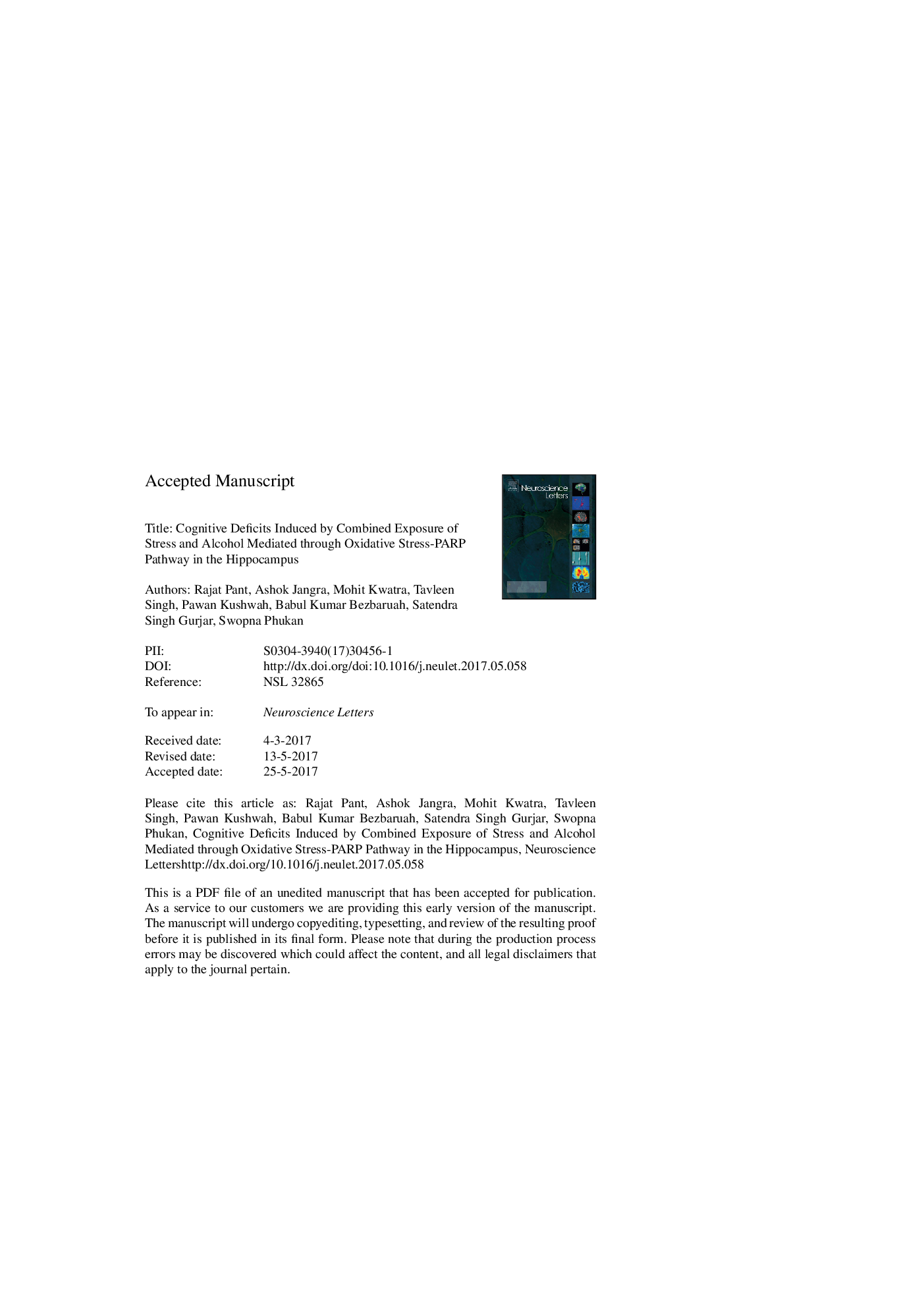| Article ID | Journal | Published Year | Pages | File Type |
|---|---|---|---|---|
| 5738132 | Neuroscience Letters | 2017 | 23 Pages |
Abstract
Several studies reported that stress can enhance the consumption of alcohol in humans and animals. However, the combinatorial effect of stress and alcohol on cognitive function and neurochemical alterations is quite understudied. In the present study, we have elucidated the involvement of oxidative stress-PARP cascade in alcohol and restraint stress (RS)-exposed animals using a PARP inhibitor, 1,5-isoquinolinediol (3Â mg/kg for 14Â days). Male Swiss albino mice were given alcohol (ALC) or RS (2Â h per day) or both in ALCÂ +Â RS group for 28Â days. Behavioral analysis revealed cognitive dysfunction in ALCÂ +Â RS group. Furthermore, oxidative stress and raised level of pro-inflammatory cytokines were found in the hippocampus region of ALCÂ +Â RS group. Semi-quantitative reverse transcriptase PCR showed overactivation of PARP-1 gene in ALCÂ +Â RS group. 1,5-isoquinolinediol treatment significantly prevented cognitive deficits and aforementioned neurochemical alterations. Overall, our findings showed that ALCÂ +Â RS exerted deleterious effects on the hippocampus which involves oxidative stress-PARP overactivation cascade.
Related Topics
Life Sciences
Neuroscience
Neuroscience (General)
Authors
Rajat Pant, Ashok Jangra, Mohit Kwatra, Tavleen Singh, Pawan Kushwah, Babul Kumar Bezbaruah, Satendra Singh Gurjar, Swopna Phukan,
